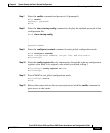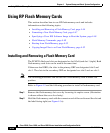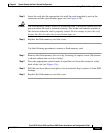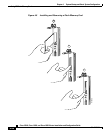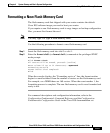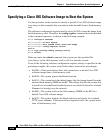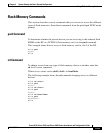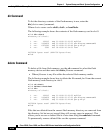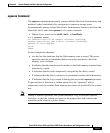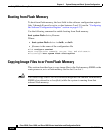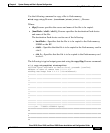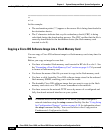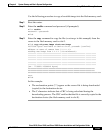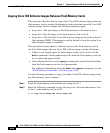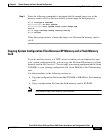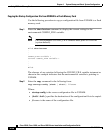
4-51
Cisco 12010, Cisco 12410, and Cisco 12810 Router Installation and Configuration Guide
OL-11496-01
Chapter 4 System Startup and Basic System Configuration
Using RP Flash Memory Cards
squeeze Command
The squeeze command permanently removes deleted files from flash memory and
makes all other (undeleted) files contiguous to conserve storage space.
To permanently remove deleted files from a flash memory directory, but leave the
other files intact, enter the squeeze device-name command.
• Where device-name can be slot0:, slot1:, or bootflash:.
Milo# squeeze slot0:
All deleted files will be removed, Continue? [confirm]y
Squeeze operation may take a while, Continue? [confirm]y
Squeeze of slot0 complete
Milo#
ebESZ
In this example the character:
• e in the last line indicates that the flash memory area is erased. This erase
operation must be accomplished before any write operation to the flash
memory area can begin.
• b indicates that the data about to be written to the flash memory area has been
temporarily copied.
• E indicates that the sector temporarily occupied by the data is erased.
• S indicates that the data is written to its permanent location in flash memory.
• Z indicates that the log is erased following the successful squeeze operation.
To prevent loss of data from a sudden power loss, the “squeezed” data is
temporarily saved to another flash memory area reserved specifically for system
use.
Note During a squeeze operation, the system maintains a log of executed squeeze
functions, so that the system can return to the proper place and continue the
operation in the event of a power failure.



